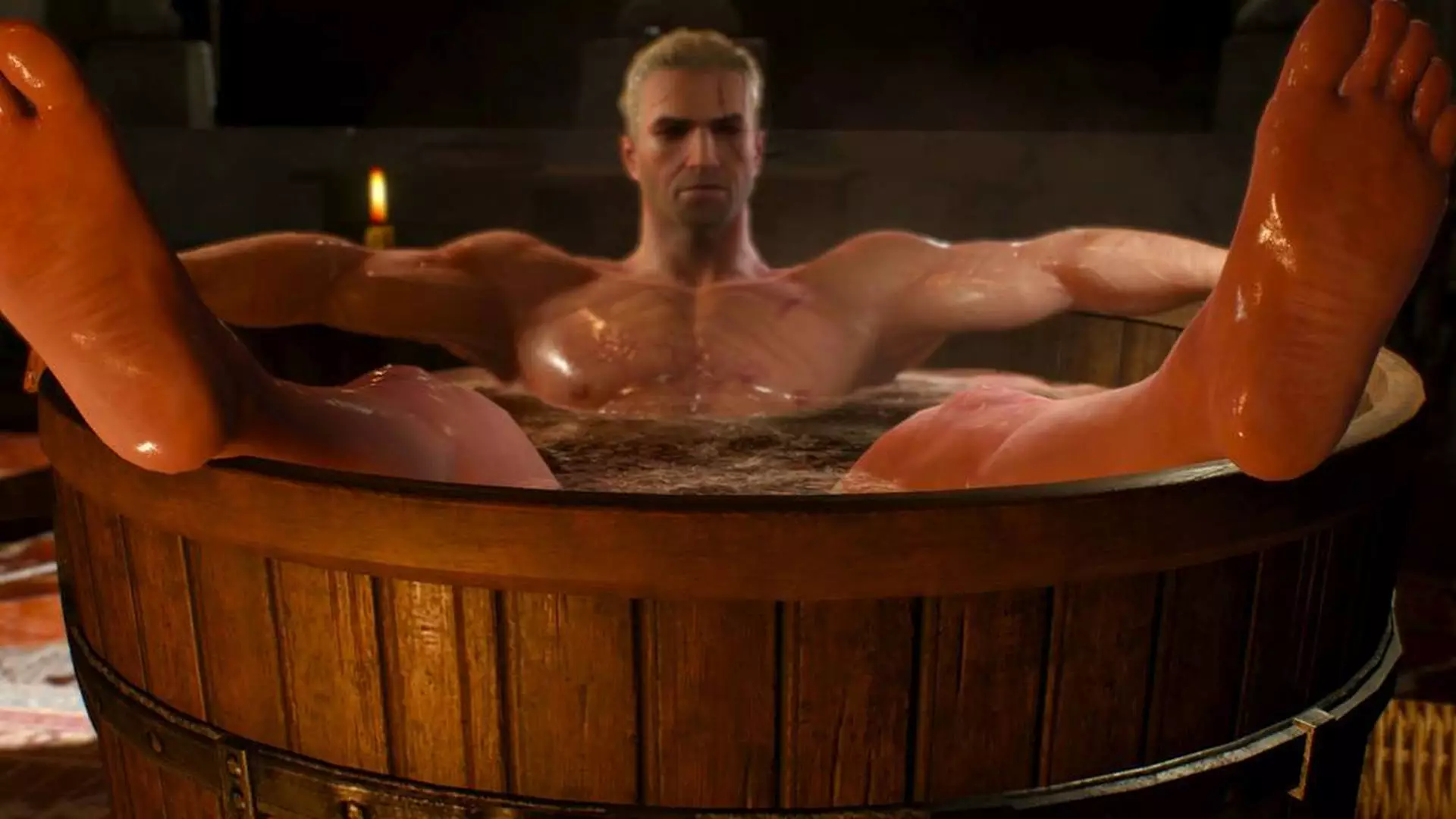Imagine Geralt of Rivia, the famed monster hunter, stripped of his armor to wade into the murky waters of a river. This intriguing notion was once on the table during the development of The Witcher 3. CD Projekt Red (CDPR), the studio behind this acclaimed game, recently shared that they considered a mechanic where Geralt would drown if he attempted to swim while fully equipped. Players would have to leave their gear behind to float along the waterways. While the aim of enhancing immersion in an already detailed world is commendable, the execution of such a system raises significant concerns about gameplay and player enjoyment.
The Balance Between Realism and Fun
At first glance, the idea of Geralt shedding his armor to swim may seem appealing for those seeking an immersive experience. After all, the realism of the medieval setting in The Witcher 3 is a hallmark of its design ethos. However, it doesn’t take long to see why such a mechanic would be more frustrating than fun. The idea suggests a meticulous, tedious process requiring players to navigate through the hassle of armor management each time they wish to explore watery depths. With the expansive world of The Witcher filled with quests and adventures that often necessitate quick movement, such a requirement would likely burden players instead of enhancing gameplay.
Furthermore, it raises practical concerns about how deep-sea exploration would operate. Players may find themselves engaging in lengthy underwater quests, only to be penalized due to the immersion-focused mechanic. The core gameplay should be about excitement and adventure, not minute details that disrupt the flow and pacing of the experience.
A Lesson from History
Interestingly, the idea of drowning a heavily armored figure in water is not unfounded in history. The tale of Holy Roman Emperor Frederick Barbarossa, who allegedly drowned while in full armor after a long ride, highlights the potential dangers associated with an overzealous dedication to realism. While historical anecdotes might provide flavor, applying such scenarios to gameplay mechanics needs to be done cautiously. The story of Barbarossa serves as a dramatic narrative in history but is far removed from the engaging fantasy experience that games strive to create.
The Right Choice for The Witcher 4
Reflecting on the revelation from CDPR about the scrapped mechanic, it’s clear that the development team made the right call in discarding this concept. Introducing unnecessary complexities into an already rich gaming experience would detract from the allure of the game. As the community engages with the robust narrative and character interactions, any friction in gameplay can feel jarring. By prioritizing player enjoyment over stringent realism, CDPR can better ensure that their future installments, including The Witcher 4, deliver the compelling and captivating experiences that fans expect.
In the end, while the essence of immersion is central to a successful fantasy role-playing game, it’s crucial to strike a balance that keeps the joy of exploration at the forefront. This decision reflects not just the creativity of CD Projekt Red but also their understanding of player expectations in an increasingly complex gaming landscape.

